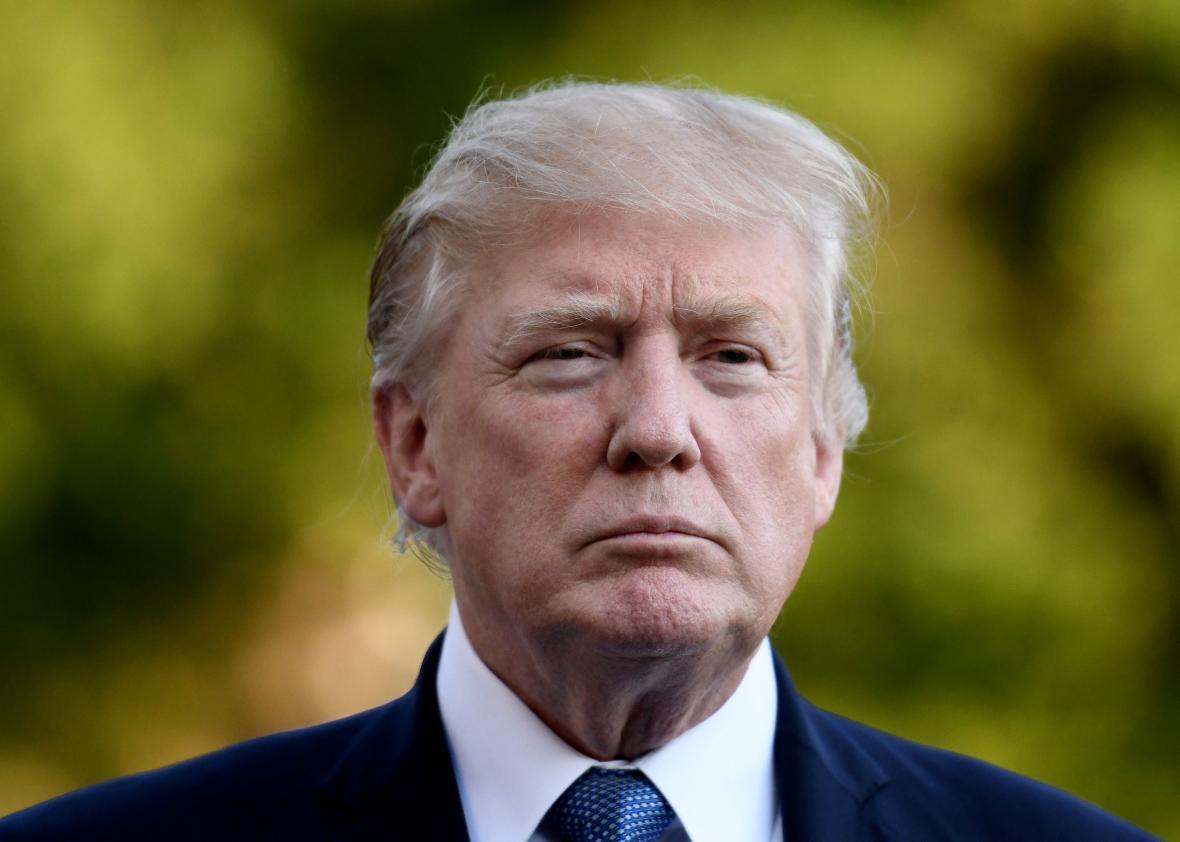The Trump administration unveiled the next step of its travel ban on Sunday, when the existing ban on visitors from six Muslim-majority countries was set to expire. A new proclamation issued by President Donald Trump expands the list of affected countries to eight: Venezuela, North Korea, Iran, Chad, Libya, Syria, Yemen, and Somalia. The list includes three additions—Venezuela, North Korea, and Chad—and one subtraction—Sudan. Although Iraq isn’t officially part of the list, the presidential proclamation does state that citizens from that country will be subject to additional scrutiny.
Not all the countries will face an outright ban. While pretty much all travel to the United States from seven countries will be blocked, the restrictions will depend on their level of cooperation with U.S. security standards as well as the threat that the administration believes each country presents. The restrictions on Venezuelans, for example, largely affect government officials and their relatives.
The inclusion of North Korea and Venezuela on the list means the restrictions have been expanded beyond Muslim-majority countries. But the ACLU isn’t buying it. One of the strongest opponents to the travel ban from the beginning said shortly after the presidential proclamation was released that the fundamentals of the initial Muslim ban have not changed.
“Six of President Trump’s targeted countries are Muslim. The fact that Trump has added North Korea — with few visitors to the U.S. — and a few government officials from Venezuela doesn’t obfuscate the real fact that the administration’s order is still a Muslim ban,” said ACLU Executive Director Anthony D. Romero. “President Trump’s original sin of targeting Muslims cannot be cured by throwing other countries onto his enemies list.”
The White House seems to have at least somewhat learned from its earlier chaotic implementation of the ban and said it would phase in the new restrictions that will take effect on Oct. 18. The restrictions also won’t affect anyone who already holds a U.S. visa.
For the past three months, the administration has used an executive order to ban pretty much all travelers from six Muslim-majority countries unless they had a “bona fide” relationship with a person or institution in the United States. Unlike the earlier ban, the new restrictions that are part of the proclamation have no time limit. “These restrictions are necessary and conditions-based, not time-based,” a senior administration official said. The United States will consider lifting restrictions if the affected countries implement tighter security and screening standards.
This marks the third version of a travel ban that the Trump administration has instituted since January. The first order was a blanket ban on citizens from seven majority-Muslim countries as well as refugees. After the courts got involved, Trump removed Iraq from the list, and the ban was limited to issuing new visas as well as refugees. The ban on refugees is set to expire on Oct. 24, and it still isn’t clear whether that will continue.
The Supreme Court, which allowed the ban to be implemented with some restrictions after it was blocked by lower courts, is scheduled to hear oral arguments about whether the original Muslim ban is constitutional on Oct. 10.
“Making America Safe is my number one priority. We will not admit those into our country we cannot safely vet,” Trump said in a tweet shortly after the proclamation was released.
*This post has been updated with new information since it was first published.
